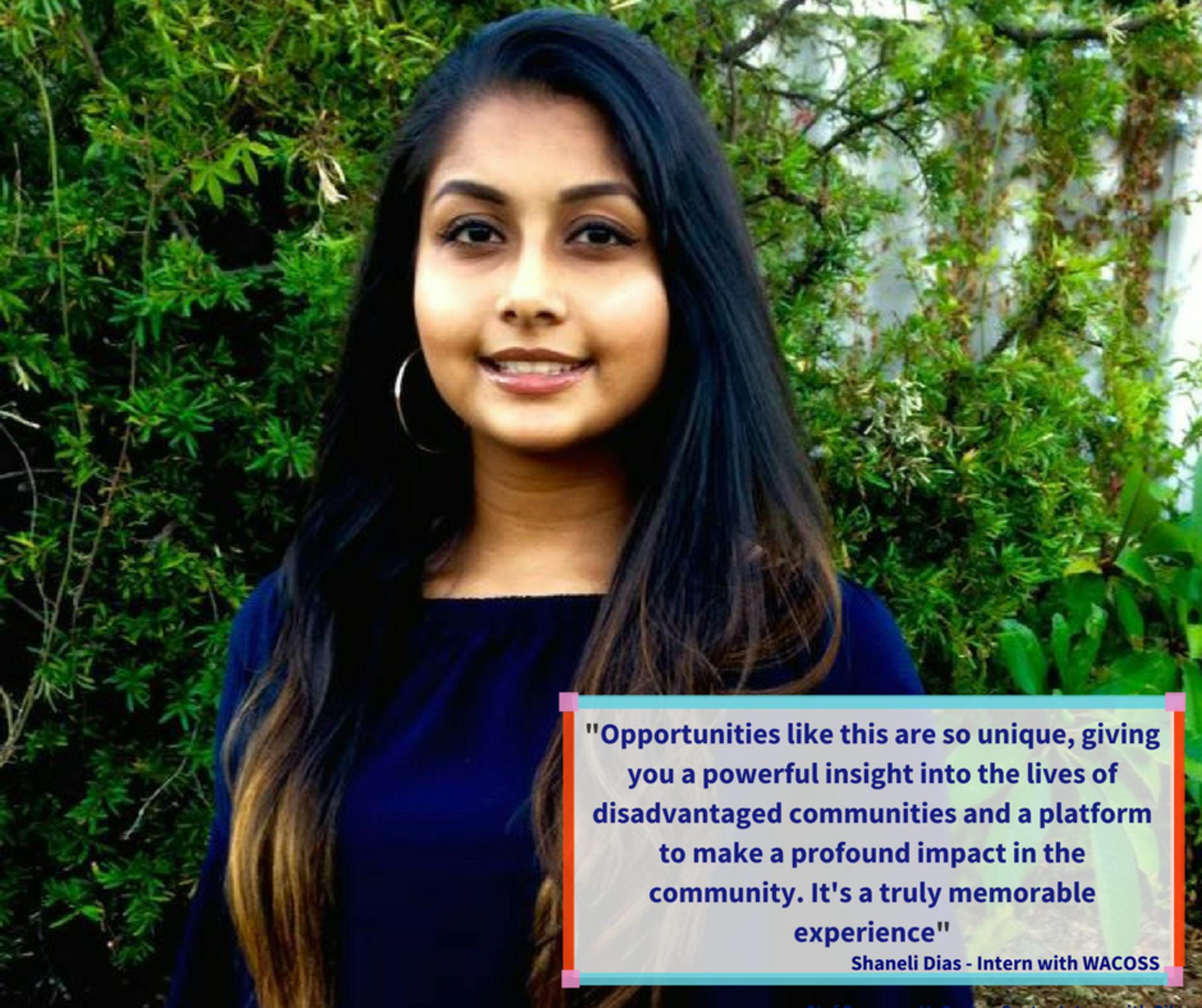UWA student Shaneli Dias, who is completing a double major in Finance and Law and Society, applied for a McCusker Centre for Citizenship internship to learn more about the not-for-profit sector and use her legal knowledge to make a positive impact in the community.
As an intern at the Western Australian Council of Social Service (WACOSS), Shaneli worked alongside the newly developed Noongar Child Protection Council (NCPC) on “best practice” legal processes for Aboriginal children and their families who come into contact with the Western Australian court systems.
She also interviewed a number of Aboriginal families about their court experiences.
Shaneli says the project highlighted the injustices facing Aboriginal children and their families.
“I’ve come to recognise the clear clash between policy and practice,” says Shaneli. “The protections and principles of natural justice, while fair on paper, don’t always exist as perfectly in real life.”
The advocacy project demonstrated that Aboriginal families require access to effective and affordable legal aid.
“The people I interviewed had a lot to say in terms of improvements that could be made,” explains Shaneli.
“It is thanks to the tireless efforts of organisations like WACOSS that social change can be further enacted on a broader level in our community to address issues of poverty and educational disadvantage so that a person’s postcode or race doesn’t prevent them from having the same rights as other citizens,” Shaneli says.
“Shaneli’s work will be invaluable to the Council as they advocate on behalf of marginalised and vulnerable people,” says Sue Nye, Manager of Social Policy at WACOSS.
Here are 5 reasons Shaneli would recommend a McCusker Centre for Citizenship to other students:
- Feeling as though your contribution really matters: your work will impact disadvantaged sectors of the community. Sometimes, as in my case, you get to meet some of the beneficiaries of your work first-hand and experience the significance of your contribution.
- Opportunities like these internships are so unique: you are given a powerful insight into the lives of disadvantaged communities and a platform to make a profound impact in the community. It’s a truly memorable experience.
- The ability to challenge yourself and stretch your capabilities: the experience definitely challenges you to get out of your comfort zone and immerse yourself in an area that you may know little about but you accomplish so much more than you would have thought.
- The ability to connect with inspiring professionals: it gives you the platform to network with professionals from various social services in the not-for-profit sector. For instance, I read an incredible book by Hannah McGlade, an Indigenous humanitarian lawyer, during the internship and then sat right next to her at one of the meetings.
- A mutually beneficial partnership: Your internship allows you to contribute to an often under-resourced area of an organisation and, in return, you gain valuable new skills and experiences.
Do you want to expand your knowledge of how to benefit people in the community via an important organisation like Shaneli did? Apply for a McCusker Centre for Citizenship Internship here

